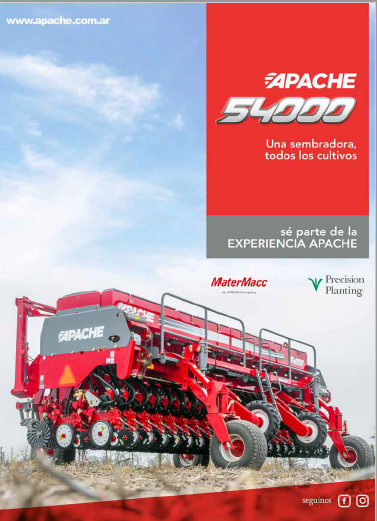Our Associate Consultant, Matías Sara, is an agricultural technician originally from Santa Fe, Argentina. He has over 20 years’ farming experience and has worked also as a consultant for farmers, agricultural associations, manufacturers and representatives of foreign brands. Today, from his base in Uruguay, he brings us 7 tips on doing business in the agricultural sector in Argentina (and by “agricultural” we mean agriculture and livestock, or “agro”, as we call it here) aimed at companies from all over the world seeking to do business with the River Plate giant.

Make sure you’re convinced.
Every time a client asks about Argentina, Matías rolls his eyes, holds his head in despair and asks “¿por qué?”. I tell him that Argentina is a big market, that it’s an agricultural powerhouse, and that there’s some good business to be done there. Yet, he doesn’t look convinced. The point is, it’s a tough country to do business in. Inflation, devaluations, currency restrictions, an array of exchange rates, import taxes, export taxes, corruption, political tensions, it’s all part of the mix. Because it’s so resource-intensive, high-risk and long-term, Argentina needs commitment and convincement right from the start.
“You really need to be convinced that you want to do business in Argentina and you need to know why. The ‘how’ you can work out later, but you need commitment or you will pull out at the first hurdle”, Matías explains.
What problem can you solve?
This is a topic we covered last year during webinars we delivered for British and Irish agritech companies. You absolutely must understand, or seek to understand, the problem you are trying to solve. This is the same for every market in the world, but because Argentina will be so resource-demanding, it’s important to take as long as needed to identify what you are really contributing with.
Understand local production systems
Very much linked to the above, Matías explains, is understanding the differences in production systems. “For example, no-till agriculture is considered the norm in Argentina, and European ploughing is considered an unacceptable torture to the soil”, he colourfully elaborates, “we are not more or less advanced than in Europe, the US, or New Zealand, we are just different and, very importantly, solutions must also work as part of our production systems, not against them.”

Take into account foreign and local competition
Some multinationals have been in Argentina for six, seven, even eight decades. “People know and trust these brands. You need to compete against companies that have been on every rural radio station advertisers’ list and at every big and small country show, for a very long time. We have worn their branded T-shirts and baseball caps in our farms for decades”, he illustrates, stressing the power of all that brand-building over time.
You will also be competing against companies from all over the world that you might not even have heard about. Matías gives us the example of Gomselmash, a Belarusian combined harvester manufacturer, which has been present in Argentina for way over a decade. Another example is that of Sonálica, an Indian company that set up a JV with Argentina’s agricultural machinery specialist Apache, and are now manufacturing tractors for Argentina in India, assembled in Argentina, under the Apache brand. Pauny, a tractor manufacturer from Argentina, buys tractors from Italy’s Carraro, and sells them under their brand in Argentina. Are you open to considering these possibilities?
What’s more, you’ll need to compete with local manufacturers, too. More likely than not, there will be a local version of what you’re offering, some of outstanding quality, some not so much so. If you sell seeds, there’s Oscar Peman, if you sell milking machines, there’s Bossio, and so on. Can you really compete? How? Can you partner with a local company instead?
Argentina is not just Buenos Aires
And Buenos Aires is not just Palermo or La Boca.
We’ll be discussing this on our next post. To really get to know Argentina, you’ll need to travel a lot. An office in Buenos Aires is not enough. You need to get out there. Tucumán is your place for lemons, Córdoba for peanuts, Balcarce for potatoes, to name a few. The good thing about Argentina is that it’s rich in terms of produce and production systems, so you can start small, focusing on your strengths, on your niche, and growth from there.
Think about financing and stock.
“In Argentina, given the conditions already discussed, financing is a must. Your final client expects some sort of financing and the rest of the chain will work on that basis, too. Financing is not an after-thought, it’s not an added-extra, it’s an intrinsic part of doing business in Argentina”. He gives us the example of Agrofina, the agricultural inputs branch of mega group Los Grobo, which is currently offering 0% interest for 90-270 days depending on the supplier, with Santander cards. Make sure your potential distributor can offer finance, and discuss early on how and when they expect to pay you. Most banks in Argentina have “agro” or “rural” credit cards and credit lines, tied to particular suppliers/retailers, but it is not common to go to a bank and borrow money to pay for seeds or tractors, for example.
Also, because financing is expensive, and risks are high, distributors are very much against holding (significant amounts of) stock. Make sure you discuss this early on with a potential distributor.

Learn a bit of “macro” and a bit of politics…
Understanding the Argentinean economy is a must for doing business in the country. You need to know for example how a devaluation of the peso can affect you and everyone else in your chain. You need to understand what inflation means and what you can do about it. There are import and export restrictions, currency rates go up and down, farmers have lots of money to spend or none at all, it’s all cyclical. “The important thing here”, Matías suggests, “is working from the start on building customer loyalty, so that customers are still prepared to pay for your product when it becomes relatively more expensive due to macroeconomic circumstances”.
“More likely than not, you will be developing a niche, finding a solution for a real problem, a solution that doesn’t exist until now. If then you become more expensive in pesos, because of a devaluation, you could lose all your work to a cheap local competitor, so you need to work from day one on building that loyalty, so that all your initial investment is worthwhile”, Matías explains.
Similarly, politics are important, as we discussed here recently. “It’s just impossible to do business in Argentina without understanding this, it’s much more important here than in any other South American country, I’d say”, Matías explains. “Doing business in Argentina is often more about finance and macroeconomics than about technical specs”, he sums up.
Pictures: Revista Chacra
